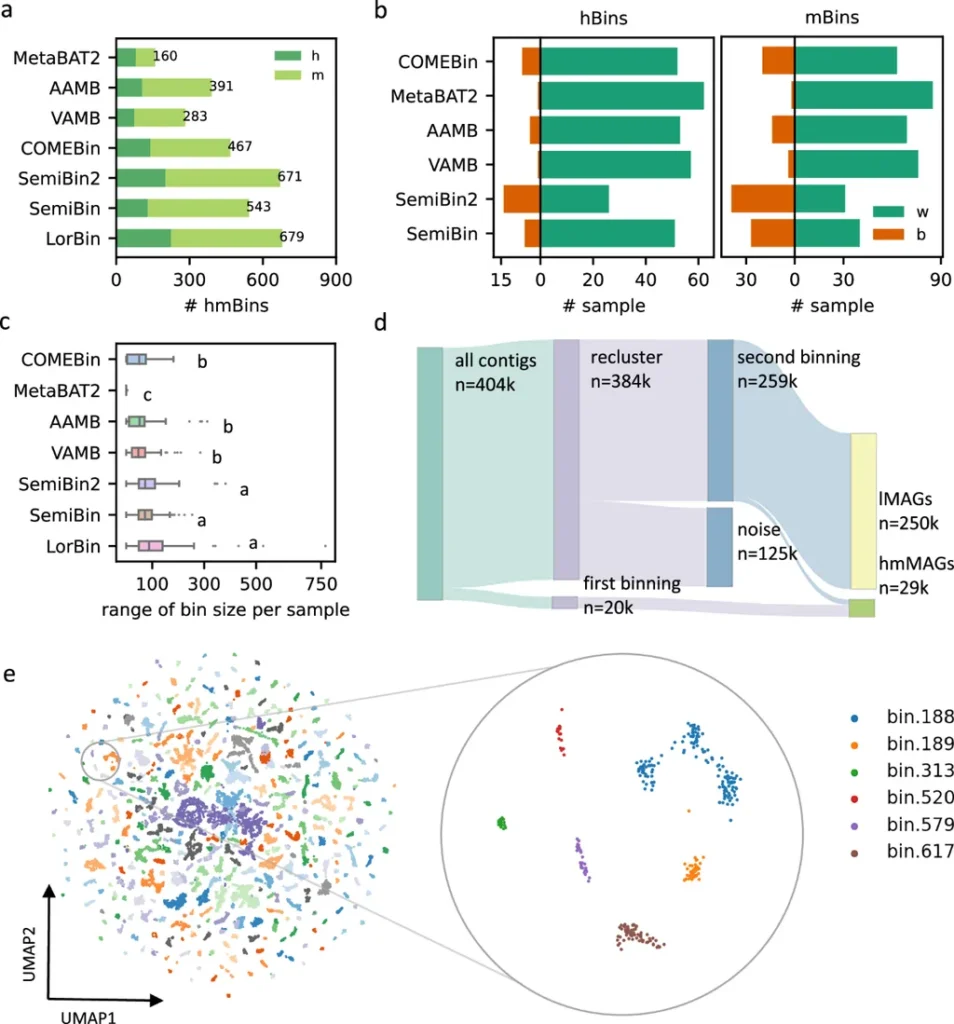In the ever-evolving world of metagenomics, a new tool has emerged that could significantly enhance our understanding of microbial communities and their potential applications in agriculture. Researchers have developed LorBin, an innovative unsupervised binner designed to reconstruct metagenome-assembled genomes (MAGs) from long-read sequencing data. This advancement addresses critical challenges in identifying unknown species and managing imbalanced species distributions, which are common in natural microbiomes.
LorBin employs a sophisticated two-stage clustering approach, combining multiscale adaptive DBSCAN and BIRCH clustering with evaluation decision models that utilize single-copy genes. This method maximizes MAG recovery, making it particularly effective for species-rich samples containing unknown taxa. “LorBin’s ability to identify novel taxa and retrieve more complete genomes from imbalanced natural microbiomes sets it apart from existing binning methods,” said Wei Xue, the lead author of the study published in *Nature Communications* and a researcher at the College of Artificial Intelligence, Jiangsu Provincial Key Lab for Solid Organic Waste Utilization, Key Lab of Organic-based Fertilizers of China, Jiangsu Collaborative Innovation Center of Solid Organic Wastes, Educational Ministry Engineering Center of Resource-Saving Fertilizers, Nanjing Agricultural University.
The implications for the agriculture sector are substantial. By improving the quality and quantity of MAGs, LorBin can help researchers better understand the microbial communities that play crucial roles in soil health, plant growth, and disease resistance. This knowledge can lead to the development of more effective biofertilizers, biopesticides, and other agricultural innovations that rely on beneficial microbes.
In tests, LorBin outperformed six competing binners in both simulated and real microbiomes, including oral, gut, and marine samples. It generated 15–189% more high-quality MAGs and identified 2.4–17 times more novel taxa than state-of-the-art binning methods. These results highlight LorBin’s potential to revolutionize metagenomic analysis and its applications in various fields, including agriculture.
As the agricultural industry continues to seek sustainable and innovative solutions, tools like LorBin could pave the way for groundbreaking discoveries. By providing a more comprehensive understanding of microbial communities, LorBin can help researchers develop targeted strategies to enhance crop productivity, improve soil health, and mitigate the impacts of climate change. The future of agriculture may well hinge on our ability to harness the power of microbes, and LorBin is a significant step in that direction.

